My cost function involves the calculation of log(det(A)) (assuming the det(A) is positive so the log makes sense, but A is not Hermitian so that the Cholesky decomposition is not applicable here). When det(A) is very large/small, a direct call to det(A) will overflow/underflow. To circumvent this, one use the mathematical fact that
log(det(A)) = Tr(log(A)),
where the later can be evaluated using LU decomposition (which is more efficient than eigenvalue/SVD). This algorithm has been implemented in numpy as numpy.linalg.slogdet, so the problem is how to call numpy from TensorFlow.
Here is what I tried
import numpy as np
import tensorflow as tf
from tensorflow.python.framework import function
def logdet_np(a):
_, l = np.linalg.slogdet(a)
return l
def logdet1(a):
return tf.py_func(logdet_np, [a], tf.float64)
@function.Defun(tf.float64, func_name='LogDet')
def logdet2(a):
return tf.py_func(logdet_np, [a], tf.float64)
with tf.Session() as sess:
a = tf.constant(np.eye(500)*10.)
#print(sess.run(logdet1(a)))
print(sess.run(logdet2(a)))
I first define a python function to pass out the numpy result. Then I defined two logdet functions using tf.py_func. The second function is decorated by function.Defun which is used to define TensorFlow functions and their gradients later. As I test them, I found that the first function logdet1 works and gives the correct result. But the second function logdet2 returns a KeyError.
---------------------------------------------------------------------------
KeyError Traceback (most recent call last)
/Library/Frameworks/Python.framework/Versions/3.5/lib/python3.5/site-
packages/tensorflow/python/ops/script_ops.py in __call__(self, token, args)
77 def __call__(self, token, args):
78 """Calls the registered function for `token` with args."""
---> 79 func = self._funcs[token]
80 if func is None:
81 raise ValueError("callback %s is not found" % token)
KeyError: 'pyfunc_0'
My question is what is wrong with the Defun decorator? Why is it conflicting with py_func? How can I wrap numpy functions in TensorFlor correctly?
The remaining part of defining the gradient for logdet is related to the question matrix determinant differentiation in tensorflow. According to the solution in that question, one attempts to write
@function.Defun(tf.float64, tf.float64, func_name='LogDet_Gradient')
def logdet_grad(a, grad):
a_adj_inv = tf.matrix_inverse(a, adjoint=True)
out_shape = tf.concat([tf.shape(a)[:-2], [1, 1]], axis=0)
return tf.reshape(grad, out_shape) * a_adj_inv
@function.Defun(tf.float64, func_name='LogDet', grad_func=logdet_grad)
def logdet(a):
return tf.py_func(logdet_np, [a], tf.float64, stateful=False, name='LogDet')
The above code would work if one can solve the conflict between Defun and py_func, which is the key question that I raised above.
